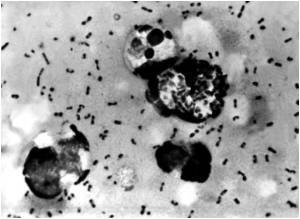The role of gut bacteria on the maturation of the immune system was discovered by new research from the RIKEN Center for Integrative Medical Sciences in Japan.

Previous studies have shown that patients suffering from inflammatory bowel disease lack butyrate-producing bacteria and have lower levels of butyrate in their gut. However, butyrate's anti-inflammatory properties were attributed to its role as main energy source for the cells lining the colon. This study is the first to provide a molecular basis for the role of butyrate on the production of regulatory T lymphocytes
The Japanese team, lead by Dr Hiroshi Ohno from RIKEN in collaboration with the University of Tokyo and Keio University, investigated the molecular mechanisms by which commensal microbes augment the number of regulatory T cells (Treg cells) present in the colon of mice that were bred germ-free.
Their research demonstrates that butyric acid, a short-chain fatty acid produced by commensal bacteria acts on naïve T cells to promote their differentiation into Treg cells. It achieves this through epigenetic changes that regulate the expression of the genes responsible for differentiation of naïve T cells into Treg cells.
The study shows that mice suffering from colitis see their levels of Treg cells increase and their symptoms improve after administration of butyrate as part of their diet.
"Regulatory T cells are important for the containment of excessive inflammatory responses as well as autoimmune disorders. Therefore these findings could be applicable for the prevention and treatment of inflammatory bowel disease (IBD), allergy and autoimmune disease," said Dr Hiroshi Ohno.
Advertisement
Source-Eurekalert















